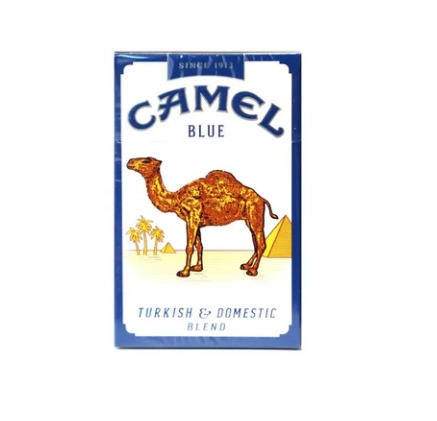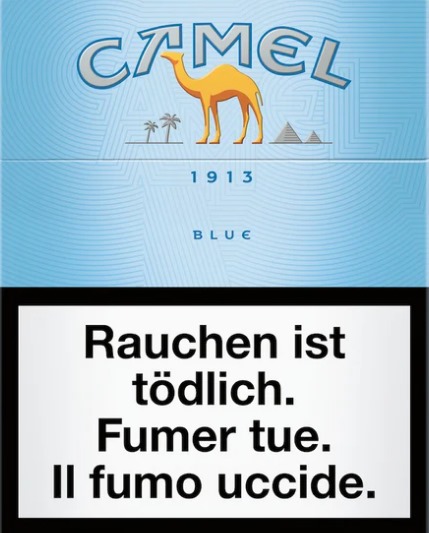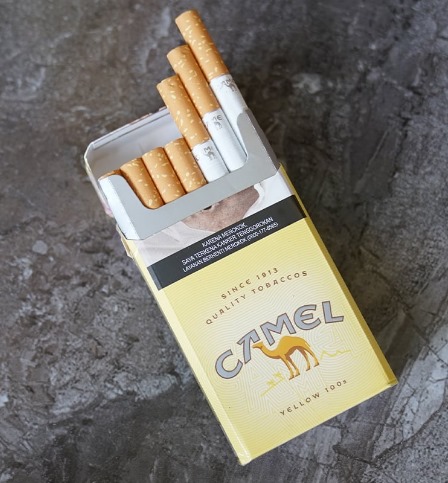Introduced in 1913 by R.J. Reynolds, Camel cigarettes pioneered the American blended cigarette category. Currently produced by multiple manufacturers under license agreements, the brand maintains global distribution through various tobacco companies.

Current Product Line
| Variant | Length | Nicotine (mg) | Tar (mg) | Filter Type |
|---|---|---|---|---|
| Camel Filters | King Size | 0.8 | 10 | Standard cellulose |
| Camel Blue | King Size | 0.6 | 8 | Standard cellulose |
| Camel Crush | King Size | 0.5 | 7 | Menthol capsule |

Tobacco Composition
- Blend: Virginia, Burley and Oriental tobaccos
- Processing: Modern cutting techniques with ribbon cuts
- Characteristics: Lighter fractions predominant in current blends
Technical Features
- Standard king size format (84mm)
- Varied filter technologies across product lines
- Consistent packaging design elements
- Graduated strength options
Historical Context
- 1913: Brand introduction with American blend
- 1920s: Market dominance with 45% US share
- 1980s: Introduction of Joe Camel marketing
- 1999: International distribution by Japan Tobacco

Market Position
Camel occupies a mid-to-premium market segment, competing with other blended cigarette brands. The product line offers both traditional and innovative variants while maintaining core brand characteristics.
